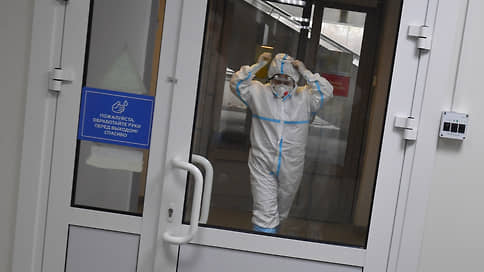Deputy chief physician is on trial for interruptions in oxygen
[ad_1]

The court in Rostov-on-Don began considering a criminal case on the death of more than ten patients in a covid hospital in the fall of 2020. The ex-deputy chief physician of the city hospital No. 20, Anna Kolenova, is accused of negligence. According to investigators, due to her improper performance of duties in the hospital, there was a failure in the supply of medical oxygen. Ms. Kolenova pleads not guilty, claiming that she repeatedly warned management about possible problems with oxygen due to insufficient supplies and a large number of hospitalized.
The Soviet District Court of Rostov-on-Don began considering the criminal case of the former deputy chief physician of the city hospital No. 20 for technology and economic affairs, Anna Kolenova. She is accused of negligence (part 1 of article 293 of the Criminal Code of the Russian Federation). The duties of Mrs. Kolenova included the uninterrupted supply of medical oxygen to the monohospital. On October 10 and 11, 2020, however, the investigators believe that she did not check whether her subordinates correctly compiled and provided suppliers with requests for its supply on time.
On November 11, 2020, the pressure in the hospital equipment necessary to provide patients with medical oxygen decreased. About 40 minutes later, its centralized supply to the system was completely stopped. According to investigators, this “created conditions for the progression of respiratory failure in patients, that is, a real threat to life and health.”
About 80 people were injured. How many of them died is not specified in the indictment. 83 people were recognized as victims in the case. Ten of them were interrogated at the first meeting. Three men and one woman said that their fathers died shortly after the oxygen supply was cut off at the hospital. Three women reported the death of their husbands. The mothers of two other victims also died. One man reported the death of his son.
The state of emergency in the Rostov covid hospital caused a great public outcry. In the fall of 2020, the media reported the death of 13 patients with COVID-19 due to lack of medical oxygen. The incident was told by the hospital staff, who were subsequently fired. Roszdravnadzor began checking the hospital. Against the background of the scandal, the Minister of Health of the Rostov Region Tatyana Bykovskaya and the head of the health department of Rostov-on-Don Nadezhda Levitskaya left their posts.
It should be noted that after the incident, the investigators opened a criminal case under the more serious part 3 of Art. 109 of the Criminal Code of the Russian Federation (causing death by negligence). Then, as part of the case, law enforcement officers conducted searches in the administration of Rostov and the regional ministry of health, as well as Nadezhda Levitskaya’s house. However, the case was later reclassified, and charges were brought against Anna Kolenova.
The protection of Ms. Kolenova expressed condolences to the victims, but declared the innocence of the ex-deputy chief physician. “She performed her duties efficiently and conscientiously. Since the start of the pandemic, Anna Kolenova has been at her workplace around the clock. In addition, in the event of any emergency situations, she informed both her leadership and the leadership of the regional Ministry of Health about this, ”said lawyer Irina Seregina.
Ms. Kolenova herself stated that she did not admit guilt. According to her, according to the technical documentation of the hospital, the daily requirement was 179 cylinders of oxygen. In fact, by October 2020, the hospital was using many times more due to the increased number of hospitalized patients. So, on the day of the incident, there were more than 600 cylinders in the hospital. Anna Kolenova emphasized that she had repeatedly reported to the hospital management, city and regional authorities that there might not be enough oxygen, but the problem was not solved. In particular, the hospital found it difficult to find suppliers who could supply more oxygen as demand soared by October 2020.
[ad_2]
Source link








